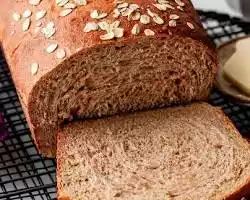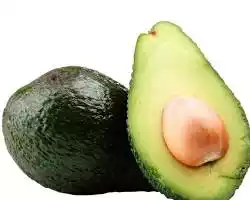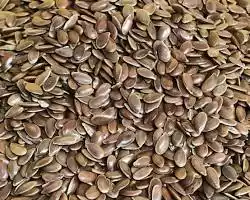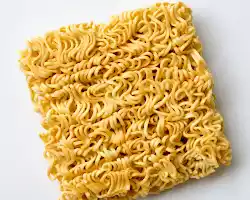Cushing Syndrome is a rare but serious condition characterized by prolonged exposure to high levels of cortisol, often referred to as the “stress hormone.” It can result from various factors, including the prolonged use of corticosteroid medications or the presence of tumors in the pituitary or adrenal glands. Discover how a well-balanced Cushing Syndrome diet can help manage symptoms effectively. Learn which foods to include and avoid, along with practical meal planning tips and nutritious snack ideas. Prioritize your health with expert advice on exercise and stress management techniques.

Cushing Syndrome: Introduction
What is Cushing Syndrome?
Cushing syndrome is a hormonal disorder caused by excessively high levels of the hormone cortisol in the body for a prolonged period. Cortisol, also known as the “stress hormone,” plays a vital role in various bodily functions, including:
- Regulating blood sugar levels
- Maintaining blood pressure
- Suppressing the immune system’s inflammatory response
- Converting food into usable energy
- Helping the body respond to stress
However, when cortisol levels remain elevated for too long, they disrupt these crucial functions and lead to various signs and symptoms collectively known as Cushing syndrome. It’s important to note that Cushing syndrome is a collection of symptoms, not a single disease itself.
Causes of Cushing Syndrome
There are several potential causes of Cushing syndrome, which can be broadly categorized into:
A. Endogenous Cushing Syndrome:
This arises from problems within the body that lead to excessive cortisol production. These issues can involve:
Cushing disease:
- This is the most common cause of endogenous Cushing syndrome and involves a noncancerous tumor (adenoma) in the pituitary gland at the base of the brain. The pituitary gland normally produces a hormone called ACTH (adrenocorticotropic hormone), which stimulates the adrenal glands to produce cortisol. A pituitary tumor secretes excess ACTH, leading to uncontrolled cortisol production from the adrenal glands.
Ectopic ACTH syndrome:
- In this less common case, a tumor outside the pituitary gland (often in the lungs, bronchi, or pancreas) starts producing ACTH, leading to similar consequences as Cushing disease.
Primary adrenal Cushing syndrome:
- This is relatively rare and involves tumors in the adrenal glands themselves, causing them to produce excessive cortisol independently.
B. Exogenous Cushing Syndrome:
This occurs when excessive amounts of cortisol-like medications (corticosteroids) are taken for various medical conditions like asthma, rheumatoid arthritis, or inflammatory bowel disease. While these medications are crucial for managing certain conditions, prolonged high-dose use can lead to Cushing syndrome in some individuals.
The Role of Diet in Managing Cushing Syndrome
While diet alone cannot cure Cushing syndrome, it can play an important role in managing symptoms and improving overall well-being for individuals with this condition.
Importance of diet:
- Symptom management: Certain dietary adjustments can help mitigate or reduce the severity of some common Cushing syndrome symptoms like:
- Weight gain and difficulty losing weight: Focusing on a balanced diet with appropriate calorie intake and nutrient composition can support weight management or prevent further weight gain.
- High blood sugar (hyperglycemia): Limiting simple carbohydrates and sugars, and focusing on complex carbohydrates and dietary fiber, can help regulate blood sugar levels.
- High blood pressure (hypertension): Reducing sodium intake by limiting processed foods and using alternative seasonings can contribute to healthy blood pressure levels.
- Muscle weakness and bone loss: Consuming adequate protein and calcium from lean meats, dairy products, and leafy greens can support muscle health and bone density.
- Improved energy levels: A balanced diet rich in essential nutrients provides the body with the building blocks and energy sources needed to function optimally, potentially reducing fatigue and improving energy levels.
How diet affects Cushing syndrome symptoms:
Here’s a breakdown of how specific aspects of diet can impact specific symptoms:
- Weight management: Cortisol promotes fat storage and can lead to weight gain, especially around the middle of the body. Reducing calorie intake and focusing on nutrient-dense foods like fruits, vegetables, and whole grains helps manage weight and prevent further accumulation.
- Blood sugar control: Cortisol can interfere with the body’s ability to use insulin effectively, leading to high blood sugar. Limiting simple carbohydrates and sugars like white bread, pastries, and sugary drinks, and focusing on complex carbohydrates and dietary fiber found in whole grains, fruits, and vegetables, helps regulate blood sugar levels.
- Blood pressure control: Cortisol can also contribute to high blood pressure. Limiting sodium intake by reducing processed foods and using herbs and spices for flavoring can help manage blood pressure.
- Muscle and bone health: Cortisol can weaken muscles and decrease bone density, increasing the risk of fractures. Consuming adequate protein from lean meats, dairy products, beans, nuts, and calcium-rich foods like milk, yogurt, cheese, broccoli, and leafy greens, can support muscle and bone health.
It’s important to note that individual dietary needs may vary based on the specific symptoms, overall health, and treatment plan. Therefore, consulting a registered dietitian is crucial to developing a personalized dietary plan customized to effectively manage Cushing syndrome symptoms and improve overall well-being.
Principles of a Cushing Syndrome Diet
While there’s no specific “Cushing syndrome diet,” several core principles can guide individuals with this condition in making healthy dietary choices to manage their symptoms:
Balancing Nutrients:
- Focus on whole, unprocessed foods: Prioritize fresh fruits, vegetables, whole grains, lean protein sources, and healthy fats like those found in nuts, seeds, and olive oil. These foods offer a variety of essential vitamins, minerals, and fiber that your body needs to function optimally.
- Moderate protein intake: Ensure you consume enough protein to support muscle health and repair, but avoid excessive protein intake, as it can put additional strain on your kidneys.
- Limit simple carbohydrates and sugars: Refined carbohydrates and added sugars can cause rapid spikes in blood sugar levels. Opt for complex carbohydrates like whole grains, fruits, and vegetables which provide sustained energy and help regulate blood sugar.
- Healthy fats are essential: Include healthy fats from sources like avocado, nuts, seeds, and olive oil in your diet. These fats contribute to satiety, nutrient absorption, and overall heart health.
Monitoring Sodium Intake:
- Reduce sodium intake: Excessive sodium intake can worsen high blood pressure, a common symptom of Cushing syndrome. Limit processed foods, canned goods, and table salt. Opt for fresh or frozen vegetables with minimal added sodium, and use herbs and spices to add flavor to your meals.
- Read food labels carefully: Pay close attention to the sodium content when choosing packaged foods. Look for options with lower sodium levels or “low sodium” labels.
Importance of Hydration:
- Stay adequately hydrated: Drinking plenty of water throughout the day is crucial for optimal body function. Aim for around 8-10 glasses of water daily, adjusting based on your individual needs and activity level.
- Limit sugary beverages: Opt for water, unsweetened tea, or black coffee instead of sugary drinks like sodas, juices, or sports drinks, which can contribute to weight gain and worsen blood sugar control.
Foods to Include in a Cushing Syndrome Diet:
Following the principles of a balanced, nutrient-rich diet while managing Cushing syndrome involves incorporating specific food groups that offer essential nutrients and support symptom management. Here are some key categories to focus on:
1. Lean Proteins:
Lean protein sources are crucial for maintaining muscle mass and promoting repair, which elevated cortisol levels in Cushing syndrome can challenge.
Examples:
Skinless chicken breast

Fish (salmon, tuna)

Lean ground turkey

Lentils and beans

Low-fat dairy products (Greek yogurt, cottage cheese)

2. Complex Carbohydrates:
Complex carbohydrates provide sustained energy, help regulate blood sugar levels, and offer essential fiber for gut health.
Examples:
Whole grains (brown rice, quinoa, whole-wheat bread)

Starchy vegetables (sweet potatoes, corn, peas)

Fruits (berries, apples, pears)
3. Healthy Fats:
Healthy fats play a vital role in heart health, satiety, and nutrient absorption. Opt for unsaturated fats from these sources:
Examples:
Avocados

Nuts and seeds (almonds, walnuts, flaxseeds)

Olive oil

Pompeian Smooth Extra Virgin Olive Oil, First Cold Pressed, Mild and Delicate Flavor, Perfect for Sauteing & Stir-Frying, 68 Fl Oz

These are just some examples, and a registered dietitian can help you create a personalized plan that incorporates your preferences and dietary needs. Remember, moderation and variety are key to a healthy diet for anyone, and especially those managing Cushing syndrome.
Foods to Avoid in a Cushing Syndrome Diet
While no specific foods are strictly forbidden in a Cushing syndrome diet, focusing on certain guidelines can help manage symptoms and improve overall well-being. Here are some categories of foods to limit or avoid:
1. High Sodium Foods:
Processed foods:
- These often contain high amounts of added sodium to enhance flavor and preserve shelf life. Examples include:
Packaged snacks (chips, pretzels, crackers)

Frozen dinners and entrees

Canned soups and vegetables

Deli meats and sausages

Restaurant meals:
- Restaurant food can often be high in sodium due to cooking methods and added ingredients. Opt for homemade meals or choose menu options with lower sodium content when dining out.
Salted snacks:
- Avoid excessive salty snacks like potato chips, pretzels, or salted nuts. Opt for unsalted or lightly salted options if choosing to consume nuts.
Table salt:
- Limit adding table salt to food during cooking or at the table. Explore alternative seasonings like herbs and spices to add flavor.
2. Sugary Snacks and Beverages:
Added sugars:
- These can contribute to weight gain, worsen blood sugar control, and negatively impact overall health. Examples of foods high in added sugars include:
Sodas

Fruit juices

Sports drinks

Candy and pastries

Sugary cereals
Sweetened desserts:
- Limit sugary desserts like cakes, pies, and ice cream. Explore healthier alternatives like fruit salad with a dollop of yogurt or dark chocolate in moderation.
3. Processed Foods:
Highly processed foods:
- These are often lacking in essential nutrients and fiber while being high in unhealthy fats, sodium, and added sugars. Examples include:
Fast food meals

Frozen pizzas and snacks

Instant noodles

Microwaveable meals

White bread and refined grains:
- Opt for whole-grain bread, pasta, and brown rice instead of their refined counterparts, which are processed and have a higher glycemic index, potentially impacting blood sugar levels.
Sample Meal Plan for Cushing Syndrome Management
This sample meal plan is for informational purposes only and should not be taken as medical advice. It is crucial to consult a registered dietitian to develop a personalized plan tailored to your specific needs and health goals in the context of managing Cushing syndrome.
General Guidelines:
- Prioritize whole, unprocessed foods.
- Focus on lean protein, complex carbohydrates, and healthy fats.
- Limit sodium intake.
- Minimize sugary beverages and snacks.
- Aim for 8-10 glasses of water daily.
Breakfast Options:
Greek yogurt with berries and a sprinkle of nuts/seeds.

Scrambled eggs with whole-wheat toast and avocado slices.

Oatmeal with chopped fruit and a drizzle of honey or maple syrup.

Smoothie made with fruit, yogurt, spinach, and protein powder (optional).

Lunch Ideas:
Grilled chicken salad with whole-wheat pita bread and a light vinaigrette dressing.

Lentil soup with a whole-grain roll.

Tuna salad sandwich on whole-wheat bread with lettuce and tomato.

Black bean and corn salad with a sprinkle of cheese and chopped avocado.

Dinner Suggestions:
Baked salmon with roasted vegetables and brown rice.

Chicken stir-fry with whole-wheat noodles and mixed vegetables.

Turkey chili with a side of brown rice or quinoa.

Snacks:
Fresh fruits and vegetables with hummus or low-fat yogurt dip.
- Nuts and seeds in moderation.
- Hard-boiled eggs.
- Unsweetened Greek yogurt.
Healthy Snack Ideas for Managing Cushing Syndrome:
1. Healthy Snack Choices:
Here are some suggestions for snacks that are both enjoyable and promote healthy choices for managing Cushing syndrome:
- Fruits and vegetables: Nature’s best snacks! Choose fruits low in glycemic index like berries, apples, pears, or oranges. Pair them with vegetables like baby carrots, cucumber slices, or cherry tomatoes for added fiber and crunch.
- Yogurt with toppings: Opt for unsweetened Greek yogurt and add your healthy toppings like berries, nuts, seeds, or a drizzle of honey.
- Hard-boiled eggs: A convenient and protein-rich snack that is easy to prepare and store.
- Edamame: This boiled or roasted soybean is a great source of plant-based protein and fiber.
- Air-popped popcorn: Enjoy this whole-grain option with a drizzle of olive oil and seasonings for a satisfying and low-calorie snack.
- Roasted chickpeas: Seasoned and roasted chickpeas offer a satisfying crunch with a good dose of protein and fiber.
- Carrot sticks with hummus: This duo provides a combination of carbohydrates, fiber, and healthy fats.
- Apple slices with almond butter: This combination offers a balanced mix of protein, healthy fats, and carbohydrates.
- Rice cakes with avocado and tomato: A simple and nutritious snack with healthy fats and fiber.
2. Nutrient-Rich Options:
These snack ideas specifically focus on providing essential nutrients relevant to managing Cushing syndrome:
- High-protein snacks: Lean protein helps manage muscle mass and promotes satiety. Options include cottage cheese with fruit, Greek yogurt with nuts, or boiled egg with whole-wheat crackers.
- High-fiber snacks: Choose fruits like berries, apples, or pears, or vegetables like broccoli or carrots, for their high fiber content which aids digestion and promotes a feeling of fullness.
- Low-sodium options: Opt for fresh fruits and vegetables, unsalted nuts and seeds, unsweetened yogurt, or homemade popcorn to limit sodium intake.
- Snacks low in added sugars: Choose fresh fruits over fruit juices, unsweetened yogurt over flavored options, and air-popped popcorn over microwaveable varieties with added sugars and flavors.
Meal Planning Tips for Managing Cushing Syndrome:
1. Portion Control:
- Be mindful of serving sizes to avoid overeating. Use measuring cups and spoons, or follow smaller plate sizes as visual cues.
- Focus on nutrient-dense foods so you feel satisfied with smaller portions.
- Pay attention to satiety cues and stop eating when you feel comfortably full, not stuffed.
2. Regular Meal Times:
- Maintain a consistent eating pattern throughout the day, including regular breakfast, lunch, and dinner, and incorporate healthy snacks in between.
- This helps regulate blood sugar levels and prevents overeating during the next meal.
- Aim for at least 3 meals and 2-3 healthy snacks daily, spaced evenly throughout the day.
3. Meal Prep Strategies:
- Prepping meals and snacks in advance saves time and helps you make healthy choices readily available.
- Cook large batches on weekends and portion them out for the week.
- Wash and cut vegetables in advance for quick snacking or salad preparation.
- Prepare hard-boiled eggs or pre-cooked lean protein sources for easy inclusion in meals.
- Pack snacks in advance to avoid unhealthy options when on the go.
Seeking Professional Guidance for Managing Cushing Syndrome
1. Importance of consulting healthcare provider:
Managing Cushing’s syndrome effectively requires a multifaceted approach involving a healthcare team. Consulting your healthcare provider is crucial for various reasons:
- Diagnosis and treatment: They will conduct a thorough evaluation to diagnose the specific cause of your Cushing syndrome and recommend the most appropriate treatment options, which may include medication, surgery, or radiation therapy.
- Monitoring progress: They will regularly monitor your condition, track your response to treatment, and adjust the plan as needed.
- Managing symptoms: They will offer guidance and medication, if needed, to manage various symptoms associated with Cushing syndrome, such as high blood pressure, blood sugar control, and muscle weakness.
- Referral to specialists: They may refer you to other specialists like a dietitian or mental health professional for additional support in managing specific aspects of your condition.
2. Working with a dietitian:
A registered dietitian specializing in endocrine disorders plays a critical role in managing Cushing syndrome through dietary counseling. They can:
- Develop a personalized meal plan: This plan will consider your individual needs, preferences, and limitations while emphasizing nutrient-rich foods and addressing specific symptoms like weight management or blood sugar control.
- Guide portion control and healthy eating habits: The dietitian can help you understand appropriate serving sizes and teach you about healthy food choices to support your overall well-being.
- Educate you on making healthy food swaps: They can suggest substituting unhealthy options with nutrient-rich alternatives, ensuring you enjoy a balanced and satisfying diet.
- Address concerns and challenges: You can discuss any dietary concerns you have, and the dietitian can guide on overcoming eating challenges associated with Cushing syndrome.
- Support your progress: They offer ongoing support and monitoring to adjust your plan as needed and ensure you stay on track with your dietary goals.
Remember, seeking professional guidance from your healthcare provider and a dietitian is crucial for effective management of Cushing syndrome. Their expertise and personalized approach can significantly improve your well-being and quality of life.
Conclusion
In conclusion, adopting a healthy diet plays a vital role in managing Cushing Syndrome and improving overall well-being. By following a balanced diet, incorporating regular exercise, and practicing stress management techniques, individuals with Cushing Syndrome can effectively control symptoms and enhance their quality of life.
FAQs
Q. What foods should I avoid on a Cushing Syndrome diet?
A. It’s best to avoid high-sodium foods, sugary snacks, and processed foods that can exacerbate symptoms of Cushing Syndrome.
Q. Can exercise help manage Cushing Syndrome symptoms?
A. Yes, regular exercise can help regulate cortisol levels, promote weight loss, and improve cardiovascular health in individuals with Cushing Syndrome.
Q. How can I ensure I’m getting enough nutrients on this diet?
A. Focus on incorporating a variety of nutrient-dense foods, including lean proteins, fruits, vegetables, whole grains, and healthy fats, into your meals and snacks.
Q. Is it necessary to count calories on a Cushing Syndrome diet?
A. While calorie counting may be helpful for some individuals, focusing on nutrient quality and portion control is generally more important for managing Cushing Syndrome.
Q. Can supplements be beneficial for managing Cushing’s Syndrome?
A. Certain supplements may be beneficial, but it’s essential to consult with a healthcare provider before starting any new supplements to ensure they are safe and appropriate for your individual needs.






It seems like you’re repeating a set of comments that you might have come across on various websites or social media platforms. These comments typically include praise for the content, requests for improvement, and expressions of gratitude. Is there anything specific you’d like to discuss or inquire about regarding these comments? Feel free to let me know how I can assist you further!
Thank you for reaching out! If you have any specific questions or topics in mind, please feel free to share them, and I’ll do my best to assist you. Whether you’re curious about a particular technology, scientific concept, literary work, or anything else, I’m here to provide information, advice, or engage in a discussion. Don’t hesitate to let me know how I can help you further!
Your article helped me a lot, is there any more related content? Thanks!